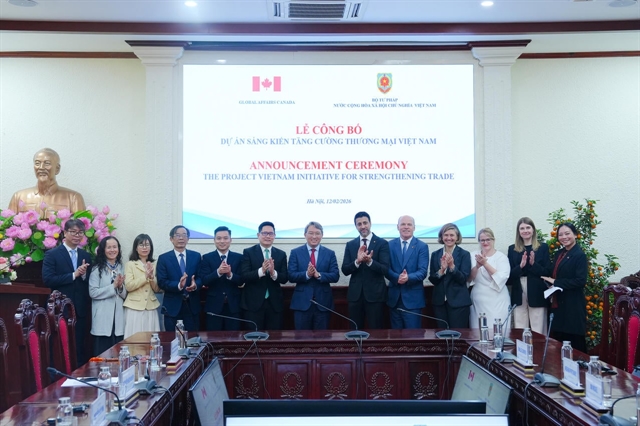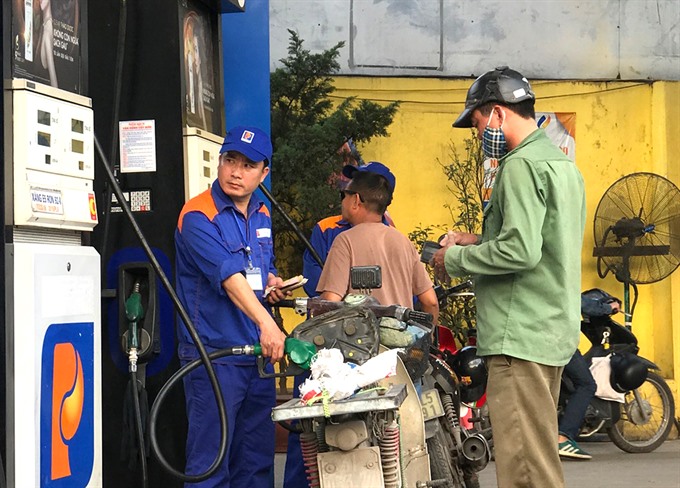 Economy
Economy

The General Department of Taxation (GDT) is aiming to apply electronic invoices for petrol products in a bid to enhance the management of petrol station data and prevent tax losses.
 |
| Customers buy petrol at a station on Trần Quang Khải Street in Hà Nội. - VNS Photo Thái Hà |
HÀ NỘI — The General Department of Taxation (GDT) is aiming to apply electronic invoices for petrol products in a bid to enhance the management of petrol station data and prevent tax losses.
Under the plan, tax authorities expect to set up a parallel and synchronised sales management software, which will allow individuals and enterprises to get their e-bills when buying petrol. Sales data will then be transmitted directly to the tax authorities, allowing for thorough management of petrol business operations.
However, since the implementation of electronic invoices for petrol products is likely to be costly, the plan is not currently feasible, according to Nguyễn Văn Phụng, director of the Large Enterprise Department under the GDT.
He added that it was impossible to force enterprises to spend such a large amount of money within a short time without calculating the business efficiency of the plan. Therefore, the GDT is working on a pilot programme to implement the scheme on a trial basis.
According to Đặng Ngọc Minh, the GDT’s deputy general director, tax authorities at all levels and petrol businesses must start to study and apply scientific and technological applications, preparing the necessary equipment and legal basis for electronic invoices in the sale of petrol products.
"Petrol dealers are encouraged to follow the plan, however, the GDT will make it mandatory for all petrol businesses in the future," Minh said.
The GDT previously stamped all petrol stations nationwide as a measure to better manage petrol business operations, which has shown significant improvement. However, according to a representative from the department, this is still just a temporary solution.
Many argue that another solution is to encourage consumers to require paper invoices whenever they buy petrol. Nonetheless, Phụng said, the current process of issuing bills at petrol stations is very complex and difficult to manage as few customers demand bills after they purchase petrol.
Most of the customers use motorcycles, and each purchase ranges from VNĐ40,000-50,000 (US$1.7-2), not worth waiting a long time for the bill. Therefore, many petrol stations collect those bills and illegally sell them to other buyers who need bills but do not actually make purchases, Phụng said. — VNS